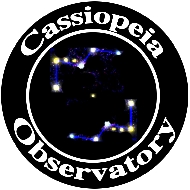Barnard Objects (Dark Nebulae) Imaging
Posted: 3 December 2023
Cloudy skies returned. Saturday morning, 25 November 2023, it rained (0.31"). Thursday night, 30 November 2023, had some rain (0.08"). Friday, 1 December, had more rain (0.27"). Saturday afternoon, 2 December, the sky cleared. I took the Dome Cover OFF.
|
Open: Saturday, 2 December 2023, 1801 MST Temperature: 58°F |
Session: 1931 Conditions: Mostly clear |
Equipment:
12" f/8 LX600 w/StarLock
2" 24mm UWA eyepiece
Focal reducer
Camera:
D850 DSLR
SYNCed the observatory clock to WWV.
1810 MST: LX600 ON, StarLock OFF, High Precision OFF.
Viewed Mercury, very low in the southwestern sky, 102X. Viewed Saturn, 102X. Then viewed Jupiter and the four Galilean Moons, 102X.
Next, I began preparing for more Barnard Objects dark nebulae imaging. Mounted the D850 DSLR at prime focus + focal reducer, focused on the star Altair, locked the 12" primary mirror, and SYNCed on Altair.
1831 MST: High Precision ON. Slewed to Barnard 316.
1837 MST: StarLock ON.
Imaged four Barnard Objects, StarLock autoguided, 2 minutes exposures, ISO 3200. All these objects were low in the southwestern sky, but I wanted to image them anyway since I missed getting them during my last Barnard Objects imaging session a month ago.
B316
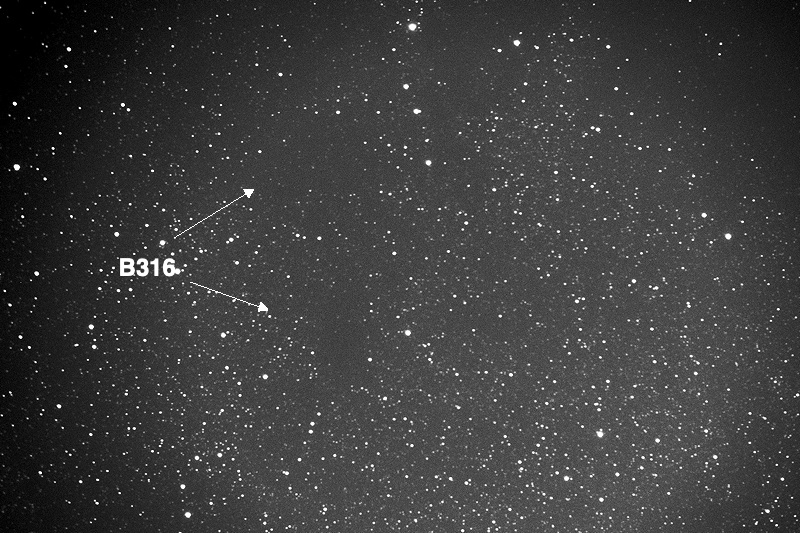
B319
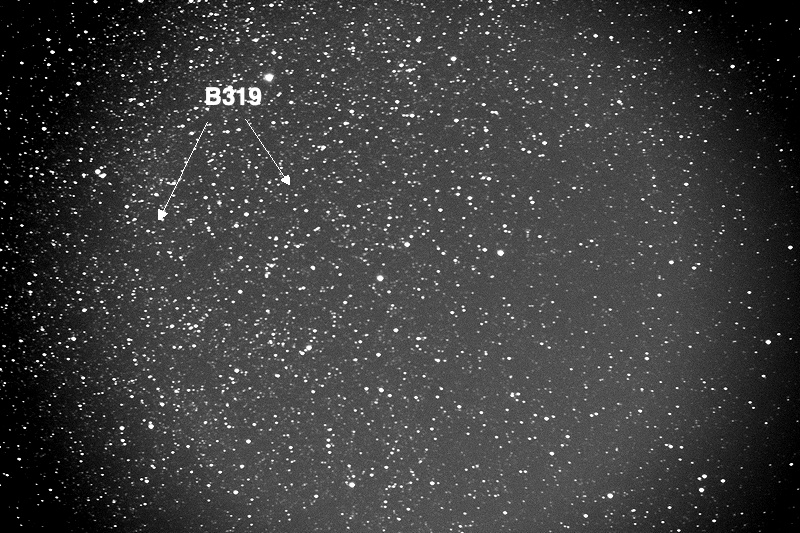
B324
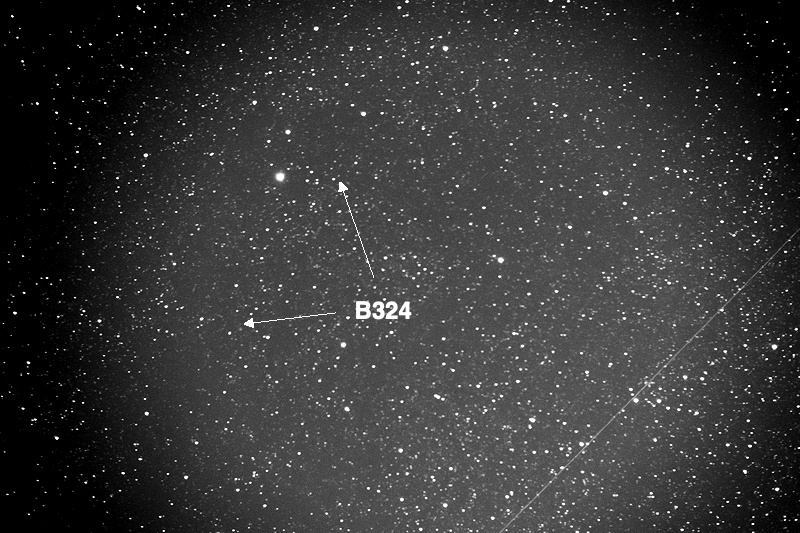
B325
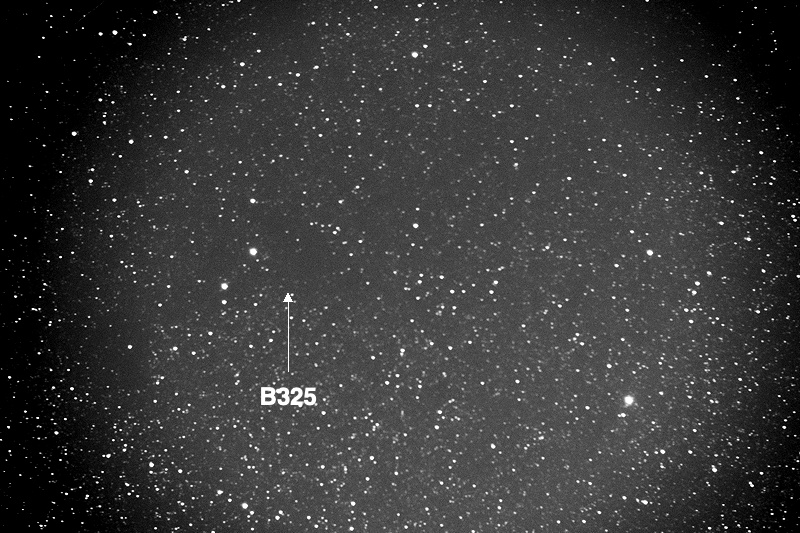
1857 MST: StarLock OFF.
Viewed M45 (the Pleiades), 102X.
1904 MST: LX600 OFF.
1911 MST: Took a Sky Quality reading using the Unihedron SQM-L meter.
|
Close: Saturday, 2 December 2023, 1914 MST Temperature: 47°F |
Session Length: 1h 13m Conditions: Clear, SQM 20.83 |
Comments are welcome using Email. Please read the Email Etiquette guidance.
Cassiopeia Observatory Home Page
Copyright ©2023 Michael L. Weasner / mweasner@mac.com.
URL = http://www.weasner.com/co/Reports/2023/12/03/index.html
